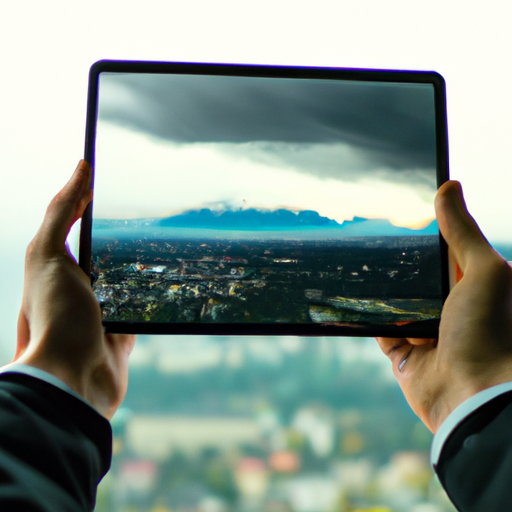
The Impact of Artificial Intelligence on Hotel Operations
Artificial intelligence (AI) has revolutionized various industries, and the hotel industry is no exception. With its ability to analyze vast amounts of data and make intelligent decisions, AI has become an invaluable tool for hotel operations. In this section, we will explore the impact of AI on hotel operations and how it has transformed the way hotels function.
One of the most significant ways AI has impacted hotel operations is through the use of chatbots. These virtual assistants are programmed to interact with guests and provide them with information and assistance. Chatbots can handle a wide range of tasks, such as answering frequently asked questions, making reservations, and even providing personalized recommendations. By automating these tasks, hotels can improve efficiency and provide a seamless guest experience.
AI has also revolutionized the way hotels handle customer service. With AI-powered systems, hotels can analyze customer feedback and sentiment to identify areas for improvement. This allows hotels to address issues promptly and ensure guest satisfaction. Additionally, AI can be used to personalize the guest experience by analyzing guest preferences and providing tailored recommendations. This level of personalization enhances guest satisfaction and loyalty.
Another area where AI has made a significant impact is revenue management. AI-powered systems can analyze market trends, competitor pricing, and historical data to optimize room rates and maximize revenue. By dynamically adjusting prices based on demand and other factors, hotels can increase profitability and maximize occupancy rates. This level of precision and automation would be impossible to achieve manually.
AI has also transformed the way hotels handle housekeeping operations. With AI-powered robots, hotels can automate routine tasks such as cleaning and restocking supplies. These robots can navigate through the hotel, avoiding obstacles and ensuring thorough cleaning. By automating these tasks, hotels can reduce labor costs and improve efficiency, allowing staff to focus on more complex and guest-centric tasks.
In addition to operational improvements, AI has also enhanced hotel security. AI-powered surveillance systems can analyze video footage in real-time, detecting suspicious activities and alerting security personnel. This proactive approach to security helps prevent incidents and ensures the safety of guests and staff. AI can also be used to automate access control systems, allowing for seamless and secure entry to hotel premises.
Furthermore, AI has transformed the way hotels handle marketing and guest engagement. AI-powered systems can analyze guest data and behavior to create targeted marketing campaigns. By understanding guest preferences and interests, hotels can deliver personalized offers and promotions, increasing the likelihood of bookings and repeat visits. AI can also be used to automate email marketing campaigns, ensuring timely and relevant communication with guests.
In conclusion, AI has had a profound impact on hotel operations. From chatbots and customer service to revenue management and housekeeping, AI has revolutionized the way hotels function. By automating routine tasks, analyzing data, and providing personalized experiences, AI has improved efficiency, guest satisfaction, and profitability. As technology continues to advance, the role of AI in hotel operations will only continue to grow, shaping the future of the industry.
Enhancing Guest Experience with Artificial Intelligence in Hotels

Artificial intelligence (AI) has become an integral part of our daily lives, revolutionizing various industries, including the hospitality sector. In recent years, hotels have started embracing AI technology to enhance the guest experience and streamline operations. From chatbots to personalized recommendations, AI is transforming the way hotels interact with their guests.
One of the most significant ways AI is enhancing the guest experience is through the use of chatbots. These virtual assistants are available 24/7, providing instant responses to guest inquiries and requests. Whether it’s booking a room, ordering room service, or asking for local recommendations, chatbots can handle it all. They not only save time for hotel staff but also provide guests with quick and efficient service. With AI-powered chatbots, guests can have their questions answered and issues resolved without having to wait in line or make a phone call.
AI is also being used to personalize the guest experience in hotels. By analyzing guest data, AI algorithms can understand individual preferences and tailor recommendations accordingly. For example, if a guest frequently orders vegetarian meals, the hotel can use AI to suggest vegetarian-friendly restaurants in the area. This level of personalization makes guests feel valued and enhances their overall experience. AI can also be used to remember guest preferences for future visits, ensuring a consistent and personalized experience every time they stay at the hotel.
Another way AI is enhancing the guest experience is through the use of smart rooms. These rooms are equipped with AI-powered devices that can control various aspects of the guest’s stay, such as lighting, temperature, and entertainment. Guests can use voice commands to adjust the room settings, making their stay more convenient and comfortable. AI can also be used to anticipate guest needs, such as automatically adjusting the temperature when a guest enters the room or suggesting nearby attractions based on their interests. These smart rooms not only enhance the guest experience but also contribute to energy efficiency and sustainability.
AI is also being used to improve hotel security and safety. Facial recognition technology can be used to identify guests and staff, ensuring only authorized individuals have access to certain areas. AI-powered surveillance systems can detect suspicious behavior and alert hotel security, preventing potential threats. This not only enhances the safety of guests but also provides peace of mind for both guests and hotel staff.
In conclusion, AI technology is revolutionizing the hotel industry by enhancing the guest experience in various ways. From chatbots providing instant responses to personalized recommendations based on guest preferences, AI is making hotels more efficient and guest-centric. Smart rooms equipped with AI-powered devices offer convenience and comfort, while AI-driven security systems ensure the safety of guests and staff. As AI continues to advance, we can expect even more innovative applications in hotel technology, further enhancing the guest experience and transforming the way hotels operate. So, the next time you stay at a hotel, remember that AI is working behind the scenes to make your stay more enjoyable and memorable.
Implementing Artificial Intelligence in Revenue Management for Hotels
Artificial intelligence (AI) has become an integral part of various industries, and the hotel industry is no exception. Implementing AI in revenue management for hotels can greatly enhance efficiency and profitability. In this section, we will explore the different ways AI can be utilized in revenue management and the benefits it brings.
One of the key areas where AI can make a significant impact is in demand forecasting. By analyzing historical data, AI algorithms can accurately predict future demand patterns. This allows hoteliers to optimize pricing and inventory management, ensuring that rooms are priced competitively and available when demand is high. With AI, revenue managers can make data-driven decisions, reducing the risk of overbooking or underpricing.
AI can also be used to automate pricing decisions. Traditionally, revenue managers had to manually adjust prices based on market conditions and competitor rates. This process was time-consuming and prone to human error. However, with AI, pricing decisions can be automated based on real-time data. AI algorithms can continuously monitor market conditions, competitor rates, and customer behavior to adjust prices accordingly. This not only saves time but also ensures that prices are always optimized for maximum revenue.
Another area where AI can be beneficial is in personalizing the guest experience. By analyzing guest data, AI algorithms can identify individual preferences and tailor offers and recommendations accordingly. For example, if a guest frequently books spa treatments, the hotel can send personalized offers for spa packages. This level of personalization not only enhances the guest experience but also increases the likelihood of upselling and repeat bookings.
AI can also be used to automate the process of upselling and cross-selling. By analyzing guest data and purchase history, AI algorithms can identify opportunities for upselling and cross-selling. For example, if a guest has booked a room with a sea view, the hotel can automatically offer an upgrade to a suite with a private balcony. This not only increases revenue but also enhances the guest experience by providing personalized recommendations.
Furthermore, AI can be utilized in dynamic pricing, which involves adjusting prices in real-time based on various factors such as demand, availability, and customer behavior. AI algorithms can analyze large amounts of data and make instant pricing decisions, ensuring that prices are always optimized for maximum revenue. This is particularly useful in a highly competitive market where prices can fluctuate rapidly.
Implementing AI in revenue management does come with some challenges. One of the main challenges is data quality and integration. AI algorithms rely on accurate and comprehensive data to make accurate predictions and decisions. Therefore, hotels need to ensure that their data is clean, up-to-date, and integrated across different systems.
Another challenge is the need for skilled personnel to manage and interpret AI algorithms. While AI can automate many tasks, it still requires human oversight and expertise. Hotels need to invest in training their revenue management teams to effectively utilize AI tools and interpret the insights provided by AI algorithms.
In conclusion, implementing AI in revenue management can greatly enhance efficiency and profitability for hotels. From demand forecasting to pricing automation and personalization, AI offers numerous benefits. However, it is important for hotels to address challenges such as data quality and personnel training to fully leverage the potential of AI in revenue management. By embracing AI, hotels can stay ahead of the competition and provide exceptional guest experiences.


